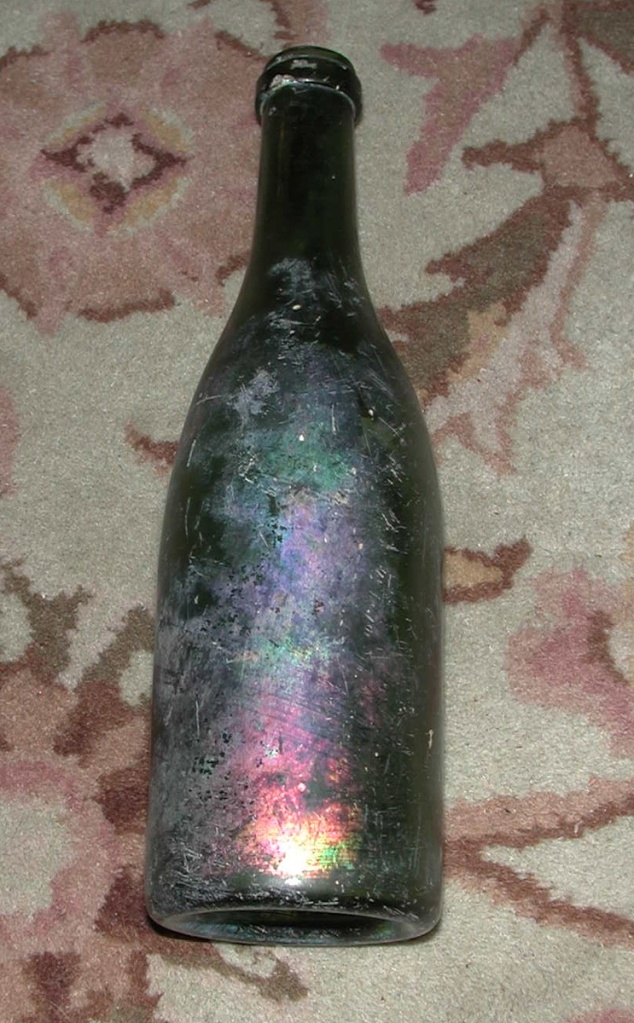It’s been a while since I last posted, so I thought this would be a good scene to catch up.
Setting the Stage: The invading Brekken soldiers have been watching the Lucky Dog Tavern where Damien is finally meeting with several agents of the Information Service. The Brekken soldiers enter and want to search the premises — and believe it or not, they’re not looking for him!
L’Arrac, the tavernkeeper (also a good guy), has set up a code phrase as a warning to Damien and his agents: L’Arrac sends his son into the back room to bring out two bottles of (fictitious) aged Briseur wine as a delaying tactic and warning. (‘Briseur’ is a French word meaning ‘Breaker’ – the slang term the Piedmontése are using to refer to the Brekken.) Alarums and excursions and shenanigans ensue while the good guys make their getaway. This is what happens next.
* * *
Back in the taproom, L’Arrac took the bottles Giollo had brought and wiped them down, then took out a screw and opened one of the bottles, setting it aside to breathe. “What’s all this about, then? Who’re ye lookin’ for, an’ why here?”
“We have be watch you shop,” the Serjent answered. “Two men we watch for, dey come in your shop. Dey no come out. Where dey go?”
“Two men—wait!” L’Arrac turned red with indignation. “Ye been watching my shop? My shop?” He pounded the bar with a heavy fist. “I am an honest man! I serve Piedmontése. I serve Martagnése. I serve Kerenjí, I serve Brekken. I serve sailors, an’ fishermen, an’ workmen, an’ shopkeepers, an’ soldiers! What d’ye think I am?” He threw up his hands. “Mebbe I should stop serving Brekken, then! What men were ye watchin’? Ye saw ‘em come in, an’ didn’t see ‘em come out? Ye must not been watchin’ very well!”
The Serjent’s face went just as red. “My men, we watch good. Two men go in, dey no come out. Where dey go?”
“I don’t know! What two men? Today?”
“Yes, today! When you t’ink?” The Serjent slapped the counter with his hand. “Tall man, wit’ yellow hair. Od’er man big, like—” He puffed out his chest and made his shoulders wide. “Where go?”
L’Arrac pointed out the front door. “Right back outside! They were already drunk and tried to pick a fight with my boy! My boy! He’s only twelve, who wants to fight with a boy? I threw them out!”
“T’roo?” The Serjent looked confused. “What is t’roo? True, like tell trut’? Not lie?”
L’Arrac couldn’t help the laugh. “Not true, threw. Like throw, like—” he looked around for something, and picked up the towel he used to wipe the counter. He balled it up and threw it across the room. “Throw! Throw! I throw them out!” He finally fell back on what was rapidly becoming a pidgin speech the shopkeepers had started to use with the Brekken. “Make go out door! Make go away! They not here, ye see they not here! Ye looked in all the rooms, the yard, the stable. They. Not. Here! Now you go away! And ye stop watchin’ my shop!”
He stood there for a moment, his chest heaving as he tried to catch his temper. “The hells,” he muttered. “Look. Ye looked all through my shop and yard. Ye ‘frighted my son. Ye terrified my horse-boy. Ye put hands on all of us. There’s no one here but us! Damn ye, look around, my taproom’s empty, ye scairt everyone else away!” He turned and picked up the bottle on the back counter, pulled down two glasses and poured a finger in each—and froze for a moment as the unmistakable tang of vinegar reached his nostrils. He set the bottle down and closed his eyes hard, then picked up the glasses and turned back to the Serjent.
“Look. Here is the Briseur red, it’s my best strong wine. We drink together, friends.” He handed one to the Serjent, and raised the glass to him. “Alla sandé!” He took a breath and threw back the drink in one swallow, then breathed out hard between his teeth.
The Serjent looked at him and raised the glass. “Prozit!” He tossed back the drink, gagged, choked, and coughed, his eyes tearing. “God!” he managed to say, his voice hoarse. He set the glass down hard and pounded the bar twice with his fist. He saw L’Arrac looking at him in concern, and finally said, hoarsely, “Is good. Is strong!” He coughed once more and cleared his throat. “T’ank. We go now. Good.” He waved his men out and followed them, slamming the door behind him.
L’Arrac turned to the back counter and took down another bottle from a high shelf, and another glass. He poured two fingers and took it fast and hard, slamming the glass on the counter and standing there with eyes closed while the fumes cleared his head. Then he moved over and pulled a mug of ale, went to sit down at the nearest table and drank it down. He took a long breath, hiccupped and then belched. And started to laugh.
* * *
